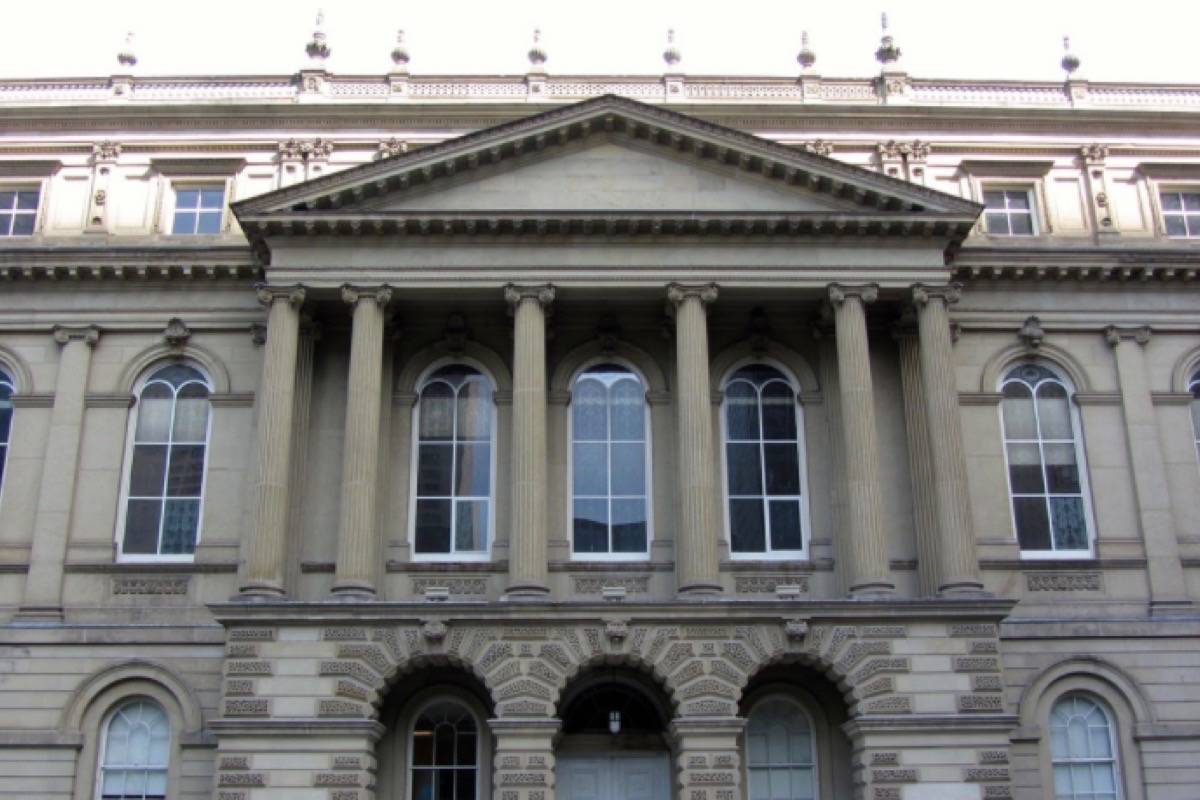A Donald Trump supporter had every right to brandish a profane protest sign in a busy public park on a summer’s day at Niagara Falls, Ontario’s top court ruled on Monday.
In quashing a trespass notice issued to Fredrick Bracken, the Court of Appeal said the ability to protest publicly — even using vulgar language — is an essential part of the democratic process.
“In a free society, individuals are permitted to use open public spaces to address the people assembled there, to challenge each other, and to call government to account,” the Appeal Court said. “The idea that the parks are somehow different — that they are categorically a ‘safe space’ where people are to be protected from exposure to political messages — is antithetical to a free and democratic society and would set a dangerous precedent.”
At the same time, the court upheld the constitutionality of a rule barring park users from abusive behaviour that could interfere with the enjoyment of other users. The provision, the court found, was a reasonable restriction on free speech.
The case arose in August 2016 in the run-up to the presidential election in the United States. Bracken, of Fort Erie, Ont., was in a park near the falls holding up a sign reading: “Trump is right. F—k China. F—k Mexico.”
Niagara Parks police decided the sign was offensive and disturbing visitors. Officers told Bracken he could not display the sign and told him to leave.
A couple of days later, Bracken went to the Parks police headquarters, where he was told that if he returned to the park with the sign, he would be removed under trespassing laws.
He turned to the courts, seeking a declaration that parks rules prohibiting “abusive or insulting language” that interferes with other park users was unconstitutional, and that the oral trespass notice police gave him had violated his free speech rights.
In September 2016, Superior Court Justice James Ramsay ruled that constitutionally guaranteed freedom of expression does not apply to shouting insulting or abusive language in parks. However, Ramsay declined to rule on the validity of the oral trespass notice because he was not satisfied police had actually issued such a notice.
Bracken turned to the Court of Appeal, which decided Ramsay was mistaken to conclude that park rules did not infringe on free speech. The judge was also wrong in deciding police had not issued a trespass notice so there was nothing to quash, the Appeal Court found.
For their part, Niagara Parks police and Niagara Parks Commission tried to argue that the parks are intended to be a place of refuge where users can experience natural beauty without the distraction of potentially divisive expression. However, the higher court found the plaza where Bracken was protesting was a busy, partly commercial area where neither quiet nor an absence of distraction was possible.
At the same time, the court upheld the law itself on the grounds that it aims to prevent individuals and groups from using public spaces in a way that makes them unfit for others to use. When the line is crossed must be decided on a case-by-case basis and, the Appeal Court said, Bracken in no way went too far.
“The public is not required to endure personalized invective, but nothing in the sign’s message could be characterized in this way,” the Appeal Court said. “The display of the sign, despite its profanity, did not constitute the use of insulting or abusive language.”
In November 2016, Niagara police arrested Bracken, then 39, during a similar protest at Brock University, according to the student paper Brock News. He was charged with assaulting a student and making offensive racial comments.
Colin Perkel, The Canadian Press



